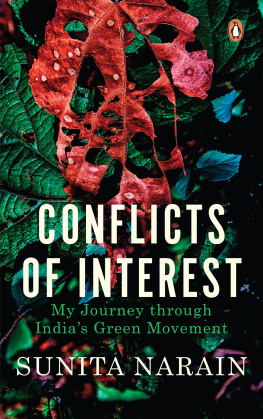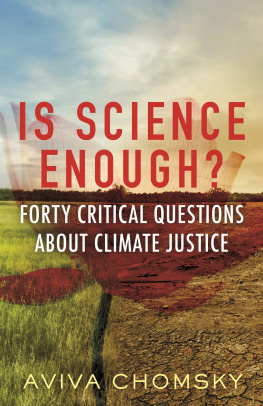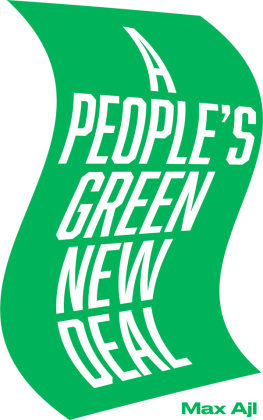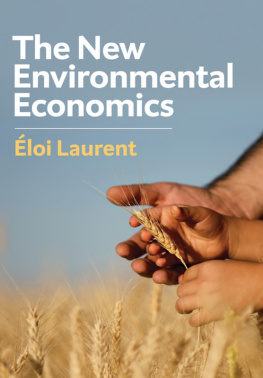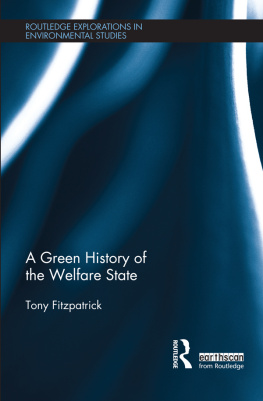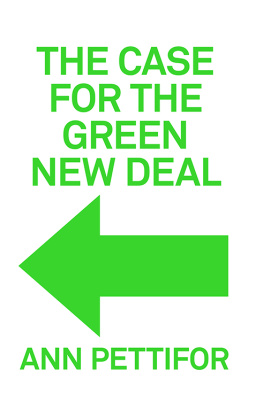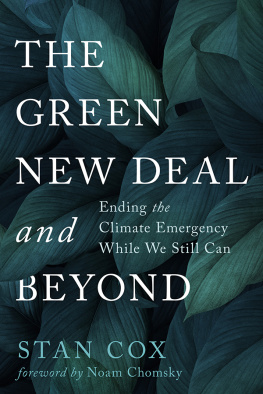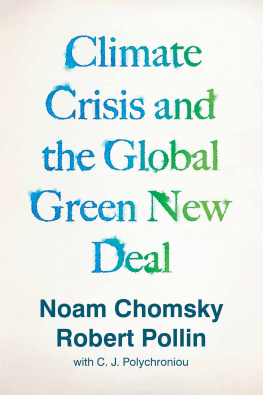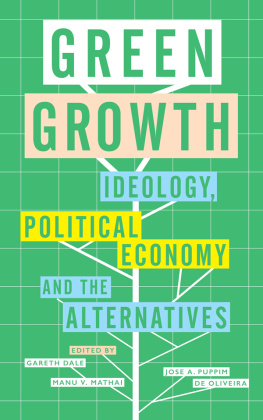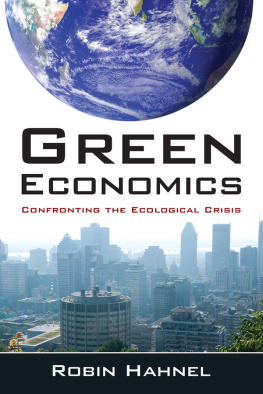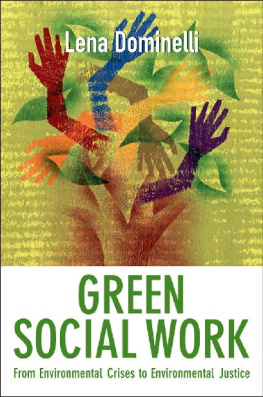Acknowledgments
I thank John Shordike, Ken Davidson, Brandon Jones, Ray Weil, Jim Williams, Jean Talbert, and two anonymous reviewers for extremely helpful edits and suggestions on drafts of this book. Their contributions greatly improved the final product and challenged me to think deeper and harder on many vexing topics. I thank the editors and staff at Johns Hopkins University Press for taking on this project and supporting it with enthusiasm. I thank scores of colleagues, mentors, and students who have opened my eyes to new ways of viewing topics of sustainability, to doing science, and to communicating to broad audiences through the written word. I am very grateful for the opportunity to serve the American Geophysical Union, where I learned so much about the roles of science in society from very talented, dedicated, and thoughtful staff and fellow volunteer scientists.
Most importantly, I thank my wife, Jean, my son, Bryce, my brother, Ken, and my sister, Wendy, for their support and patience, not only for tolerating me while I sequestered myself in my office to work on the book but also for a lifelong journey together of seeking meaning, fulfillment, and joy from our family bonds.
Muddling or Dealing?
We made it through the Bronze Age, the Middle Ages, the Renaissance, and the industrial revolution without having a bunch of pointy-headed intellectuals telling us how to do it, my friend insisted. And mankind will make it through the next era, whatever itll be called, without plans dictated by governments, he said with satisfaction, while taking an equally satisfying swig of beer. Bruce was about twice my age, which was unusual for a Peace Corps volunteer. I fitted the more common stereotype of the nave and idealistic twenty-something American, searching for adventure, experience, and meaning while sincerely trying to do something useful to help meet some of the needs expressed by my African village hosts. They made it clear that they wanted improved health care, and while I was not a nurse or physician, I could partner with them to create vaccinations campaigns, cleaner sources of water, and well-baby clinics. My wife worked with local midwives and trained volunteers to start a prenatal screening clinic. We were newlyweds, but our Peace Corps stint was not the usual honeymoon. At the moment, however, we were taking a break with our friend Bruce, enjoying a cold Simba beer on a hot African night while debating the worlds problems.
Bruce was full of contradictions. He had devoted his professional life to mother-child health projects in developing countries financed by charities and government programs, but he clearly was no bleeding-heart liberal. Indeed, I was discovering his libertarian, laissez-faire side as we lubricated our conversation. Our worldview debate seemed especially odd in the context of the African nation of Zaire (now the Democratic Republic of the Congo, or DRC), where most people worked so hard for so little. The villagers who built a mud-brick and thatched-roof house for us to live in were, of course, less interested in our political worldview than in our ability to improve their families health. As we made our modest contributions, the Zairian communities with whom we were partnering did have better health care, prenatal care, vaccines for their kids, and cleaner water, for a little while at least. We listened to what our village councils wanted and helped coordinate efforts to advance those goals. We attempted to transfer the know-how and infrastructure necessary to carry on these efforts after our departure, such as constructing and repairing concrete boxes around natural springs so that drinking water could be safely collected free of contamination. Since then, events sadly beyond the villagers control, such as civil wars, political corruption, the Ebola epidemic, and now the COVID-19 pandemic, have left many citizens of the DRC and many other countries still deep in abject poverty.
Muddling through the Eras
The eras named by historians and epochs named by geologists have come and gone, but we have yet to create a world in which all or nearly all humans live with sufficient food, shelter, clothing, and dignity. Advances in technology have provided many of us a prosperous modern lifestyle (including cold beer), and, on average, people are better nourished and have longer expected lifetimes now than at any time in human history. That means about one out of every ten people is hungry and lives in severe poverty. Despite improvements for the other nine out of ten, it is hard to see such middling progress as more than muddling through.
As I was entering adulthood, I had hope that the world was also entering into a new era where the muddling through of the past would no longer be good enough. Only a few million people lived during the Bronze Age, a few hundred million in the Dark Ages, about one billion at the beginning of the industrial revolution, and there were already 3 billion people on Earth the night that Bruce and I pontificated over a beer in 1980. Over 3 billion more people were added in just the forty years since, nearly doubling the global population in half of a modern humans lifetime. Most demographers project that the human population may eventually plateau at 1012 billion by the end of this century. How can that many people continue to extract what they need for their prosperity and well-being from the Earths finite resources? Can the Earth absorb the many forms of waste, including greenhouse gases and plastic garbage, generated by so many people? Who will benefit from new technologies and who will be left behind, or worse yet, left to deal with the garbage, waste, pollution, and climate change caused predominantly by those who advance?
There was good reason for the idealism and optimism of my youth, and I would say that there is even more reason now, as we have better science, more knowledge, and more powerful technologies at our disposal. But despite those advances in science and technology, we still seem to be muddling through the decades, making incremental improvements in some areas and slipping in others. Therefore, perhaps it is time to consider that we need something like, well,... a plan... or a new deal?
The Anthropocene: When the Human Domain Clearly Enveloped the Earth
That new era that Bruce referred to as whatever it will be called has since been dubbed the Anthropocene, and it looks like both historians and geologists might adopt the name. This means the era or epoch when the Earth has unequivocally become dominated by human activities, leaving clear and lasting evidence in the Earths geologic history. That term was coined by the late Paul Crutzen,
Evidence of human impacts on the Earth goes back thousands of years, such as abundant evidence that prehistoric human hunters and gatherers wiped out many species of plants and animals, much as modern humans continue to cause extinctions of plant and animal species today.
Most scientists are a conservative, skeptical bunch (an idea that I will return to in The radioactive fallout spread from pole to pole and from mountain tops to deep ocean sediments, leaving a lasting, unambiguous, telltale demarcating line of anthropogenic (human-caused) alteration of the geologic record.
The existential threat posed by nuclear weapons is still very much with us. Meanwhile back at the ranch, so to speak, we are changing the rest of the world at an unprecedented pace and scalechanging the climate, profoundly altering the movement of water, energy, carbon, nitrogen, phosphorus, and other essential elements for life, and permanently eliminating species of plants and animals.
Humans have made similar changes on a smaller scale throughout history. The once prosperous and sophisticated Mayan nation of what is now part of Mexico and Central America, for example, exhausted its local resources, which contributed to its eventual demise. so wed better not screw it up. Will we muddle through or deal with a plan?


